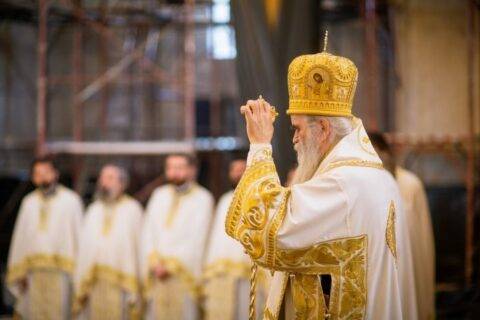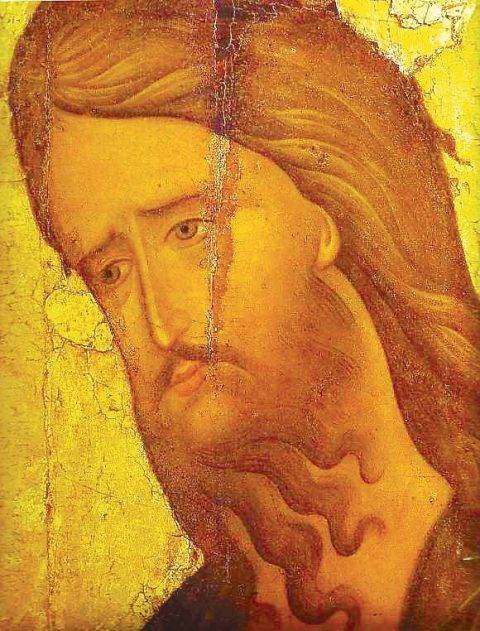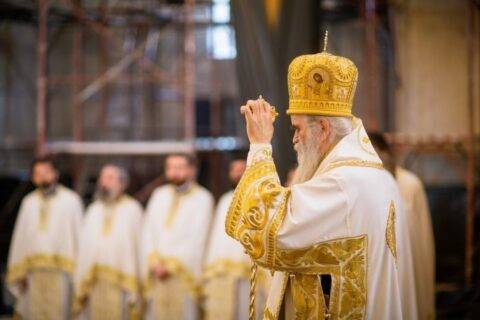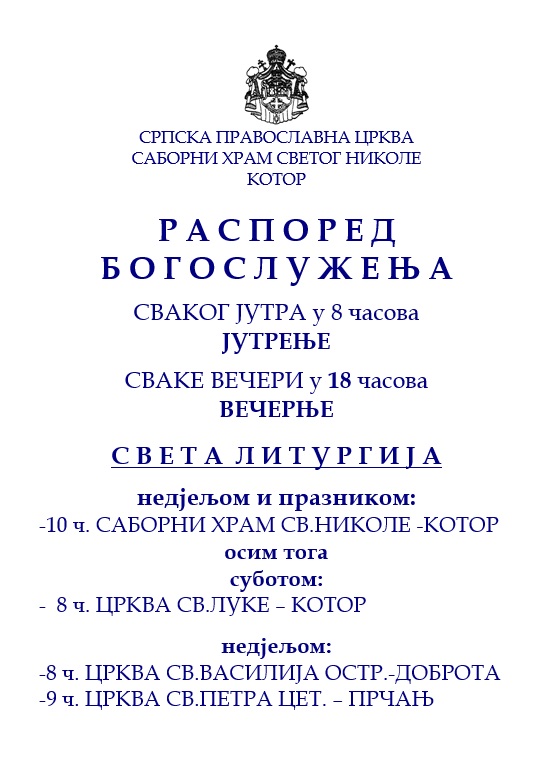
Metropolitan Amphilochius on St. John the Theologian and what he testifies to in his Gospel
Sermon by the late Metropolitan Amphilochius in the Church of St. John the Theologian in Morinj, August 21, 2010
We have consecrated, dear brothers and sisters, this renovated temple of St. John the Theologian, the beloved disciple of Christ, the fourth Evangelist. St. John the Theologian, unlike the other three Evangelists, does not only describe the life of Christ, what happened to Him while He walked here on earth, does not only record those events, happenings and miracles, and does not only record those words of His that He spoke. The characteristic of his Gospel is that he sees the deeper mystery of the person of Christ. If the other three Evangelists, and he too, speak in part about the events of Christ’s life and about His birth, the Epiphany, the Transfiguration, the crucifixion, resurrection and ascension and all that happened with Him and through Him, he reveals to us right at the beginning of his Gospel that deeper mystery that is hidden in those works of His that He did while walking among us. We all know that his Gospel begins with the words: “In the beginning was the Logos and the Logos was in God and God was the Logos.”
Logos is a Greek word that is difficult to translate. Since the time of the Holy Brothers Cyril and Methodius, we have translated it with the word “Word” – “In the beginning was the Word”. In more recent times we translate it as: “In the beginning was the Word”. However, neither the Serbian nor the Slavic nor any other language is capable of containing the entire content of this expression used by Saint John the Theologian, logos. For logos means both letter, word, meaning, reason, wisdom, and many other meanings are used in that word that Saint John used, using expressions of ancient Hellenic wisdom in order, inspired by God, to point to the eternal mystery of the person of Christ and to point to us the mystery of Him as the only begotten Son of God, the mystery of Him eternally begotten by God the Father, who, when the fullness of time had come, came sent by God the Father into this world so that “whoever believes in Him should not perish but have eternal life.” The mystery of Christ’s divinity is revealed and announced to us by Saint John the Theologian. It is no coincidence that at the Last Supper, as recorded, only John the Theologian leaned his head on Christ's chest, when he asked: "Who is it, Lord? Who will betray You?" Leaning his head on Christ's chest, the power of Christ touched His mind, transformed and changed his mind and his heart. Eternal divine wisdom was manifested through him, he received from Christ's chest that deep knowledge, which is difficult for the human mind to reach, he drew that knowledge, that wisdom and that truth.
PHOTOS
RELATED ARTICLES

Calendar for January 21 Venerable George the Chozevit
A native of Cyprus. His older brother, Iraklid, went to the Holy Land and...

SCHEDULE OF THE EPIPHANY DAY 2026
SUNDAY, JANUARY 18EPHIPHANY DAY (EPHIPHANY)-8.oo Holy Liturgy (St. Basil -...

Calendar for January 20 The Feast of Saint John the Baptist – John’s Day
“The greatest born of women” (Mt. 11:11) is celebrated several...





.png)